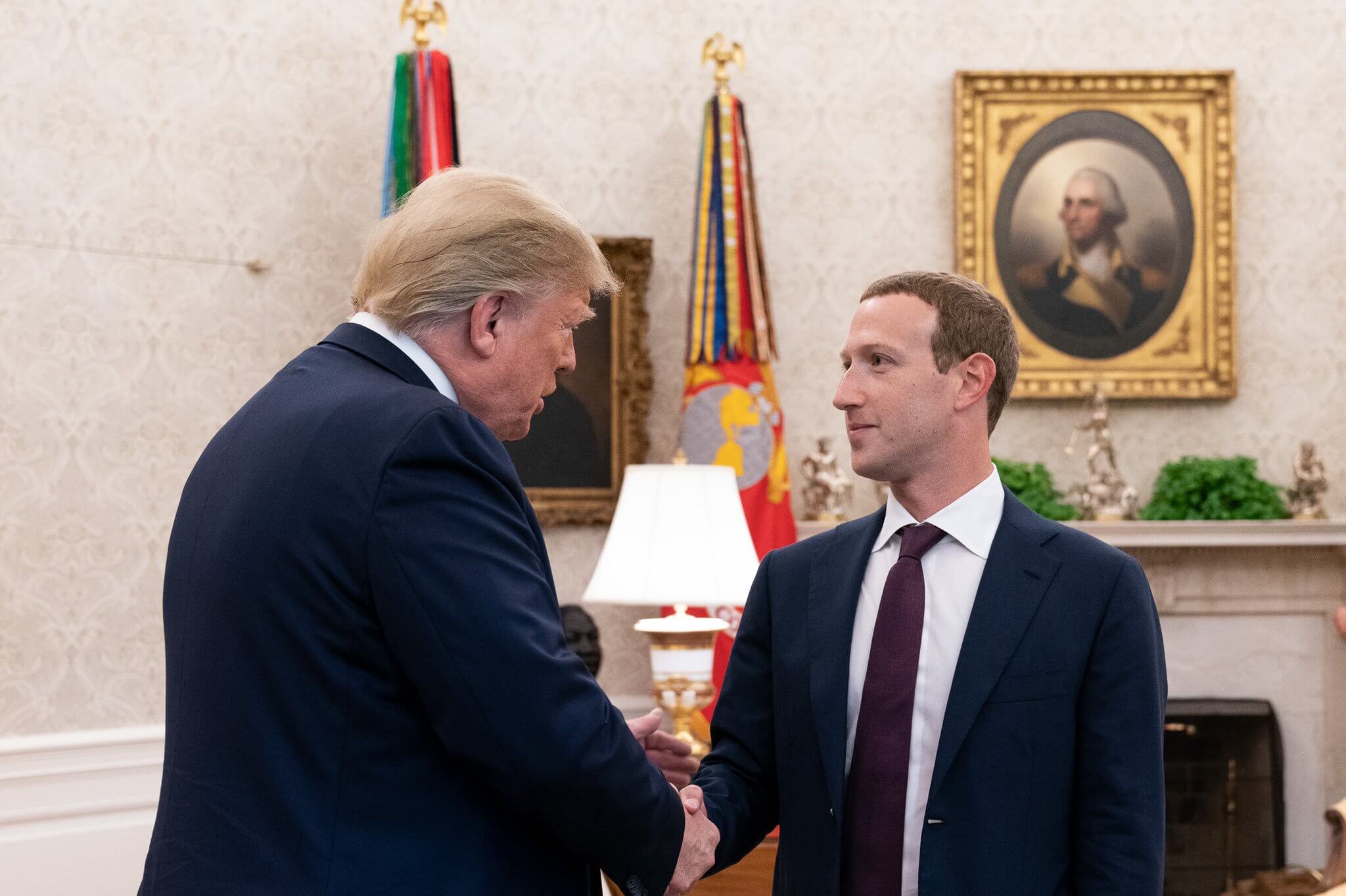In brief: Zuckerberg had an unannounced meeting with President Trump and several lawmakers to discuss future internet regulation and address the matters of privacy protections, alleged bias, and the company's cryptocurrency plans. While he does agree that Facebook has a lot of room to improve, he doesn't see the idea of selling Instagram and WhatsApp as a step in that direction.
Facebook CEO Mark Zuckerberg met with Donald Trump and several senators in Washington to discuss their concerns about the company's privacy breaches, the plans to launch its Libra cryptocurrency, as well as suspicions of political bias and censorship being used to governing the social platform.
Trump wasn't particularly excited to meet Zuckerberg, but a Facebook spokesperson told Axios the two had a "constructive meeting." The president took to Twitter to say it was a "nice meeting" him, but senators were much less warm in their interaction. For example, Republican Senator Josh Hawley was quick to ask Zuckerberk if he would consider selling Instagram and WhatsApp to demonstrate his commitment to privacy and fair competition.
After all, the CEO himself touted Facebook's plans for a "privacy-focused" future earlier this year and publicly asked regulators to take a more active role in regulating tech firms. Unfortunately for him, Hawley isn't the only one that would love to see Facebook being broken up into smaller companies. Senator Elizabeth Warren made a similar proposition as part of her presidential campaign, arguing that tech giants have become too big to fail and are stifling innovation.
Zuckerberg wasn't receptive to the idea of selling Instagram and WhatsApp, even as Senator Richard Blumenthal pressed him on antitrust issues. Instead, he only offered vague responses that Facebook is still trying to figure out how to handle the deep integration between its services and the potential for abuse.
The discussion around Libra was just as intense and Zuckerberg told lawmakers that Facebook won't launch its cryptocurrency anywhere in the world until it gets approved in the US. That said, places like the EU seem even less receptive to it, with France vowing to ban Libra as soon as possible.
Other topics discussed with lawmakers include election security, the protection of user data, preventing the dissemination of harmful content, as well as the new villain in town, deepfakes.
